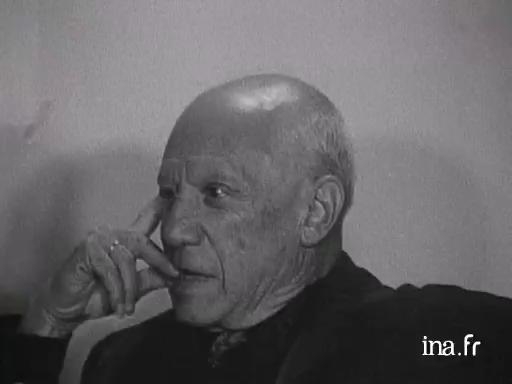Pablo Picasso

Information
Informal conversation with Pablo Picasso, living on the French Riviera at Mougins, regarding his public appearances, television and his paintings.
Context
A major artist of the 20th century, Pablo Ruiz Picasso (1881, Malaga - 1973, Mougins) was initiated into painting very early in his life. His father was a professor at the School of Fine Art in Barcelona, to which he was admitted at fourteen years old, before joining the Royal Academy in Madrid. This classic training did not stop him from frequenting cafes and houses of ill-repute, where he found the theme for theDemoiselles d'Avignon, his first foray into cubism. Before the war, he founded the movement to revolutionise figuration with Braque, through inspiration from Cézanne and primitive art.
Picasso still tried out other styles, from melancholic expressionism in the Bleue et Rose periods (1901-1907) to surrealism (1925-1936), passing by neo-classicism (1916-1924) and on to other disciplines such as sculpture, engravings, ceramics. His work would never evolve towards complete abstraction and recurrent characters reappeared: harlequins, minotaur, horses, African masks and the feminine figures of his multiple conquests.
An engaged artist without going directly into combat, Picasso spent the two wars in Paris, denounced Francoism through paintings and joined the communist party in 1944, without giving up his hedonistic way of life. He refused to return to a Francoist Spain until his death.




















